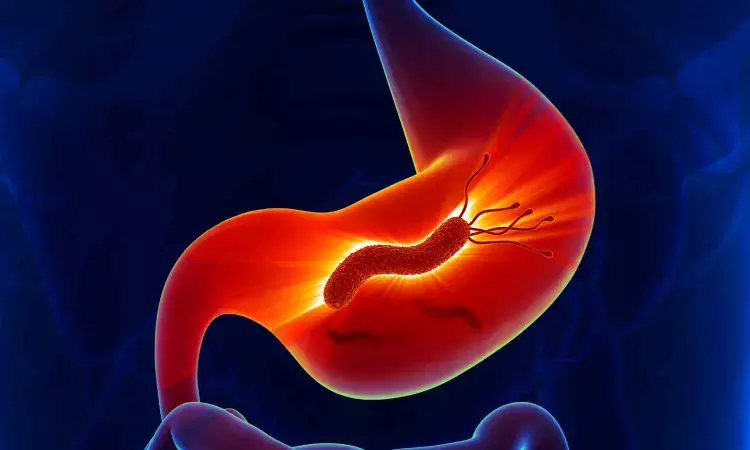- Home
- Medical news & Guidelines
- Anesthesiology
- Cardiology and CTVS
- Critical Care
- Dentistry
- Dermatology
- Diabetes and Endocrinology
- ENT
- Gastroenterology
- Medicine
- Nephrology
- Neurology
- Obstretics-Gynaecology
- Oncology
- Ophthalmology
- Orthopaedics
- Pediatrics-Neonatology
- Psychiatry
- Pulmonology
- Radiology
- Surgery
- Urology
- Laboratory Medicine
- Diet
- Nursing
- Paramedical
- Physiotherapy
- Health news
- Fact Check
- Bone Health Fact Check
- Brain Health Fact Check
- Cancer Related Fact Check
- Child Care Fact Check
- Dental and oral health fact check
- Diabetes and metabolic health fact check
- Diet and Nutrition Fact Check
- Eye and ENT Care Fact Check
- Fitness fact check
- Gut health fact check
- Heart health fact check
- Kidney health fact check
- Medical education fact check
- Men's health fact check
- Respiratory fact check
- Skin and hair care fact check
- Vaccine and Immunization fact check
- Women's health fact check
- AYUSH
- State News
- Andaman and Nicobar Islands
- Andhra Pradesh
- Arunachal Pradesh
- Assam
- Bihar
- Chandigarh
- Chattisgarh
- Dadra and Nagar Haveli
- Daman and Diu
- Delhi
- Goa
- Gujarat
- Haryana
- Himachal Pradesh
- Jammu & Kashmir
- Jharkhand
- Karnataka
- Kerala
- Ladakh
- Lakshadweep
- Madhya Pradesh
- Maharashtra
- Manipur
- Meghalaya
- Mizoram
- Nagaland
- Odisha
- Puducherry
- Punjab
- Rajasthan
- Sikkim
- Tamil Nadu
- Telangana
- Tripura
- Uttar Pradesh
- Uttrakhand
- West Bengal
- Medical Education
- Industry
H. pylori Infection linked to Colorectal Cancer, suggests Lancet study

A new study published in the journal of Lancet eClinical Medicine showed that Helicobacter pylori (H. pylori) infection might be a major risk factor for colorectal cancer development.
Recent studies points to a potential connection between colorectal cancer risk and Helicobacter pylori (H. pylori) infection. Therefore, this investigation was carried to investigate the relationship between H. pylori infection, anti-H. pylori medication, and colorectal cancer and its precursor, adenoma.
A total of 3,475 individuals underwent colonoscopies and H. pylori testing as part of a screening program in Zhejiang Province, China, between March 8 and December 29, 2023, as part of the observational study portion. The relationships between H. pylori infection and the risk of colorectal cancer and adenoma were examined using logistic regression models.
The relationships between H. pylori infection, anti-H. pylori therapy, and the risk of colorectal cancer and adenoma were also the subject of a meta-analysis. From the beginning until April 9, 2025, 3 databases (PubMed, Embase, and the Cochrane Library) were searched for pertinent research.
The Newcastle–Ottawa Scale for case-control and cohort studies, as well as the guidelines provided by the Agency for Healthcare Research and Quality for cross-sectional studies, were used to assess the quality of the research. I2 statistics were used to quantify heterogeneity, and subgroup analyses were carried out to find possible causes.
This study evaluated publication bias using funnel plots and corrected for potential bias using Duval and Tweedie's "trim-and-fill" methodology. The Grading of Recommendations, Assessment, Development, and Evaluation approach was used to gauge the degree of certainty in the evidence.
In comparison to normal or non-adenomatous lesions (n = 2199), this study discovered a statistically significant correlation between H. pylori infection and the risk of colorectal cancer (n = 31, OR = 2.57, 95% CI: 1.26–5.39) and adenoma (n = 1245, OR = 1.37, 95% CI: 1.19–1.59), particularly for advanced adenoma (n = 486, OR = 1.94, 95% CI: 1.59–2.38).
H. pylori infection had a positive correlation with colorectal cancer (OR = 1.59, 95% CI: 1.39–1.82, I2 = 89%) and adenoma (OR = 1.47, 95% CI: 1.36–1.59, I2 = 88%), particularly with advanced adenoma (OR = 1.77, 95% CI: 1.56–2.00, I2 = 65%), according to a meta-analysis of this and 54 other studies, which included 48,945,236 participants.
The overall odds ratio (OR) for colorectal neoplasia (adenoma or colon cancer) was 1.49 (95% CI: 1.39–1.60, I2 = 91%). Overall, this study found a considerably increased incidence of colorectal cancer and adenoma in people who had H. pylori infection, indicating that H. pylori infection might be a significant risk factor for colorectal cancer development.
Source:
Li, X., Tao, H.-Q., Zhao, J.-E., Zhu, J., Du, L.-B., Gerhard, M., & Li, W.-Q. (2025). Helicobacter pylori infection, anti-Helicobacter pylori treatment and risk of colorectal cancer and adenoma: an observational study and a meta-analysis. eClinicalMedicine, 84(103299), 103299. https://doi.org/10.1016/j.eclinm.2025.103299
Neuroscience Masters graduate
Jacinthlyn Sylvia, a Neuroscience Master's graduate from Chennai has worked extensively in deciphering the neurobiology of cognition and motor control in aging. She also has spread-out exposure to Neurosurgery from her Bachelor’s. She is currently involved in active Neuro-Oncology research. She is an upcoming neuroscientist with a fiery passion for writing. Her news cover at Medical Dialogues feature recent discoveries and updates from the healthcare and biomedical research fields. She can be reached at editorial@medicaldialogues.in
Dr Kamal Kant Kohli-MBBS, DTCD- a chest specialist with more than 30 years of practice and a flair for writing clinical articles, Dr Kamal Kant Kohli joined Medical Dialogues as a Chief Editor of Medical News. Besides writing articles, as an editor, he proofreads and verifies all the medical content published on Medical Dialogues including those coming from journals, studies,medical conferences,guidelines etc. Email: drkohli@medicaldialogues.in. Contact no. 011-43720751


